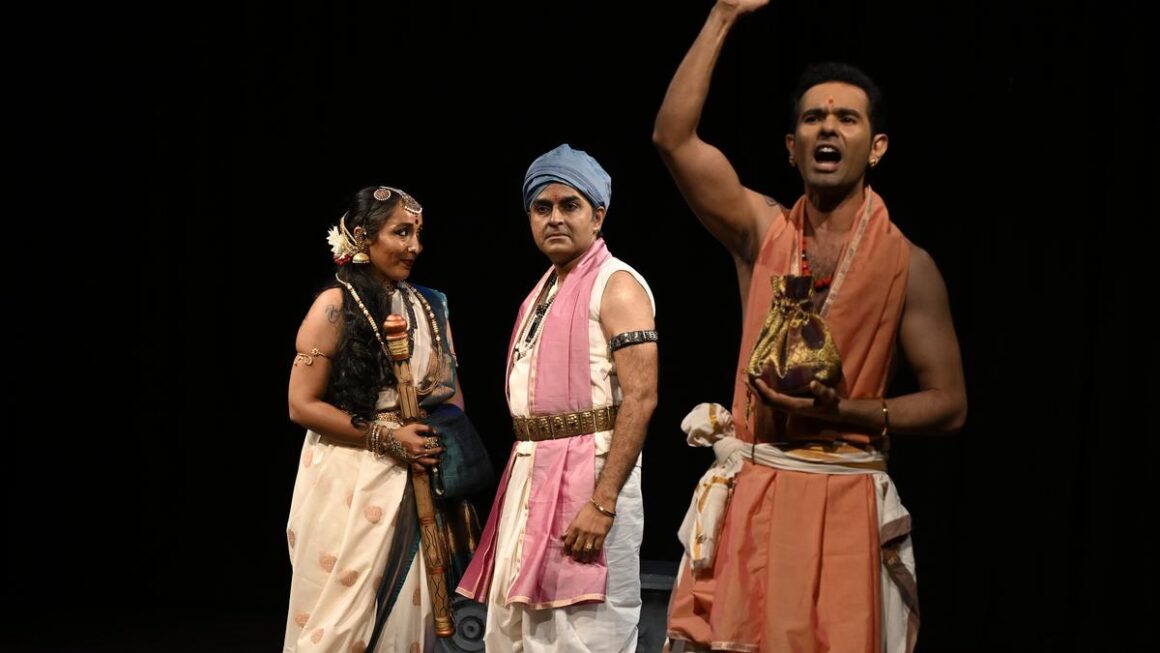
Kongai Thee was staged at Alliance Francaise in Chennai.
| Photo Credit: R. RAGU
Shraddha’s latest play Kongai Thee, written by Indira Parthasarathy shows us the contemporary relevance of Silappadhikaram. The writer’s powerful lines struck a deep chord with the audience.
The play opens with Kovalan (Swaminathan) returning home after a long absence. He flatters Kannagi, and tells her that it is wrong for a woman to be lovely and not be aware of it. But as a jealous lover, he is angry when Madhavi later says the same thing to him.
Madhavi points out the double standards that the world has. Cauvery does not spurn the Chola king, because he has conquered the Ganges.
This is the dharma laid down for a man — that he can seek comfort in the arms of another woman and yet come back to his wife, as if nothing has happened. The dramatist points out that Madhavi’s dance is priceless but sadly, Madhavi has a price. Kannagi and Madhavi are victims, not of fate, but of a social system that puts them in straitjackets. Kovalan accuses Madhavi of being incapable of true love, because she is only a courtesan. And Madhavi retorts that women like her were created, so that men would realise the greatness of their wives.
The play also stood out for its music and well-choreographed dance
| Photo Credit:
R. RAGU
Kavitha Shivakumar as Kannagi played her role with aplomb, first as a meek, unquestioning wife and then as an avenging woman. But this is a role that offers scope for action. Madhavi’s is the more difficult role to play.
Preethi, as Madhavi, scored through her mischievous smiles, her sarcastic jibes, and her quiet pain. The exchanges between the two narrators — Maadalan (Sabarish) and Devandhi (Janani) were lively.
The play brought alive an epic love triangle
| Photo Credit:
R. RAGU
Music was by Janani, whose choice of ragas captured the emotions of the verses. Ragas Amritavarshini, Desh, Hamirkalyani and Vaasanti were used effectively in the Indira Vizha scene. Preethi’s choreography conveyed the essence of the verses. Traditional percussion instruments such as mizhavu and thudumbu were played by Sashidhar and Ashwin. Janani, who sang the songs, used a yazh as a drone. The use of ancient instruments lent an air of authenticity to the music. The instruments were sourced from URU band.
With Kongai Thee, Krishnamurthy has proved his mettle as a director.


Leave a Reply